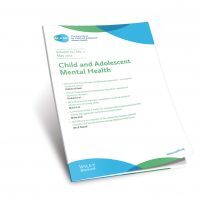CAMHS services
-

Inclusion and Advocacy for Women with ADHD: Addressing Inequities and Challenging Diagnostic Bias on International Women’s Day
March 8th, 2024 is International Women’s Day and this year’s theme is “Inspire Inclusion.” Unfortunately, women who hold multiple intersecting identities that are systemically oppressed world-wide are often excluded from discussions. One example includes women who are neurodiverse, and more specifically for this post, women with attention-deficit/hyperactivity disorder (ADHD). Women and non-binary folks are often excluded from appropriate diagnosis of ADHD due to bias in providers, boy/men-dominated symptoms in the DSM-5 (Barkley, 2023; Hinshaw et al., 2021), socialization to mask and internalize symptoms, and sexism and other forms of discrimination. As with most discrimination, this is even worse for women with ADHD who also hold other systemically oppressed identities. This blog will focus on how to increase equity for women with ADHD with concrete solutions for multiples systems that affect them.
Read more -

Compassionate Care and Compassion Fatigue in CAMHS
In this In Conversation podcast, we are joined by consultant clinical psychologist, Dr. Lucy Maddox. Lucy is currently researching compassionate care and compassion fatigue in Child and Adolescent Mental Health Services (CAMHS) and is also passionate about the wider dissemination of psychology ideas.
Read more -

JCPP 2023 Special Issue – ‘Innovation in Child and Adolescent Mental Health Interventions’
The Journal of Child Psychology and Psychiatry (JCPP) are delighted to announce the JCPP 2023 Special Issue on ‘Innovation in Child and Adolescent Mental Health Interventions’, edited by Paul Ramchandani, Tim Dalgleish, Joan Luby, Bradley Peterson, and Edmund Sonuga-Barke.
Read more -

Call for papers – CAMH Special Issue 2025 ‘Physical Environmental Influences on the Psychosocial Outcomes of Children, Adolescents, and Young Adults’
The Child and Adolescent Mental Health (CAMH journal) invites manuscripts for a special issue entitled ‘Physical Environmental Influences on the Psychosocial Outcomes of Children, Adolescents, and Young Adults’ to be edited by Dr. Keri Wong, Dr. Steven Papachristou, and Dr. Marta Francesconi.
Read more -

Mental health and care-experienced young people: are our mental health support services appealing and accessible?
Children in care are much more likely to experience mental health problems than young people in the general population. Early life experiences, such as abuse, neglect, parental drug-use or violence likely play a major part in this. So too could the instability that is often inherent in the care system.
Read more -

Short Research Article: Opening a new CAMHS day hospital – does it affect inpatient admissions and does it help at all?
Paper from the CAMH journal – ‘This study’s primary aims were to examine the impact of a new Child and Adolescent Mental Health Service (CAMHS) day hospital on referrals and admissions to the associated CAMHS in-patient unit.’ Sannie John and Dermot Cohen
Read more -

Networks of Care: Insights from the OxWell Student Survey
The ‘Insights from the Oxwell Student Survey’ series is a new mini-in conversation series that will explore the OxWell study and the impact of its findings for parents, teachers, policymakers and mental health professionals.
In this episode, Professor Mina Fazel, Dr. Emma Soneson, and Dr. Simon White will provide insight into what the Oxwell Student Survey is, discuss some key findings, and explore the implications of these findings for networks of care.
Read more -

Barriers and facilitators of implementation of evidence-based interventions in children and young people’s mental health care
In this Papers Podcast, Ari Peters-Corbett, Dr. Sheryl Parke, Dr. Holly Bear, and Dr. Tim Clarke discuss their co-authored CAMH review paper ‘Barriers and facilitators of implementation of evidence-based interventions in children and young people’s mental health care – a systematic review’.
Read more -

Editorial: Evidence-based child and adolescent mental health care: The role of high-quality and transparently reported evidence synthesis studies
Open Access paper from JCPP Advances – ‘The publication of evidence synthesis studies (e.g., systematic reviews, meta-analyses of aggregated data or individual participant data, network meta-analyses, umbrella reviews) has grown exponentially in recent decades, with many placing these studies at the top of the pyramid of what is considered good evidence (Murad et al., 2016).’ Alessio Bellato (pic) et al.
Read more -

Practitioner Review: A core competencies perspective on the evidence-based treatment of child conduct problems
Open Access paper from the JCPP – ‘We report on the development of a novel consensus-based model of core competencies for evidence-based practice in this field, based on consultation with an international expert panel. This includes competencies as they apply to complex presentations of conduct problems.’ Jessica M. Barker and David J. Hawes.
Read more